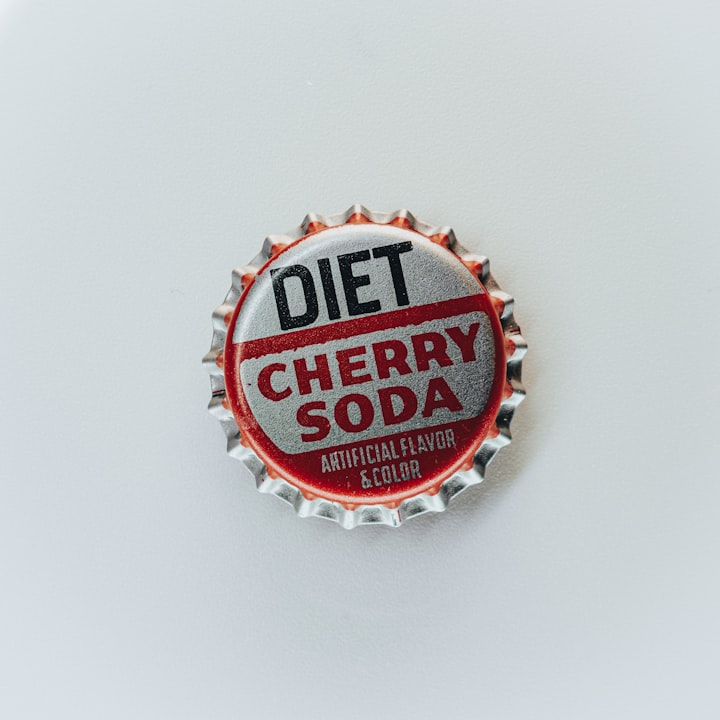The Bittersweet Truth about Diet Soda
Navigating the Maze of Misconceptions and Realities

In the whirlwind of health trends and dietary fads that have swept through the decades, few have garnered as much attention and controversy as diet soda. Introduced in the early 1960s as a beacon of hope for health-conscious consumers seeking a guilt-free alternative to traditional sugary sodas, its popularity skyrocketed. Yet, beneath the surface of its enticing promises of fewer calories and less sugar lies a complex web of misconceptions and realities that demand closer examination.
At first glance, the allure of diet soda seems undeniable. With its enticing array of flavors and the promise of indulgence without the guilt, it quickly became a staple in the diets of millions. But as the adage goes, if something seems too good to be true, it probably is. And so it is with diet soda.
Central to the debate surrounding diet soda is its impact on metabolic health—a topic that has sparked heated discussions among health experts and consumers alike. On the surface, the logic seems sound: by substituting sugary sodas with their diet counterparts, one should theoretically reduce their calorie intake and, in turn, promote weight loss and improve metabolic health. However, the reality is far more nuanced.
The crux of the issue lies in the way our bodies respond to artificial sweeteners, the primary components of diet soda. When we consume these sweeteners, our taste buds perceive sweetness, triggering a cascade of physiological responses that mimic those elicited by real sugar. Our brain sends signals to our pancreas, prompting the release of insulin in anticipation of incoming sugar molecules to be metabolized for energy. However, when these anticipated calories fail to materialize, our bodies are left in a state of confusion, unable to properly regulate blood sugar levels and metabolism.
This phenomenon, known as the "sweetness trap," has been implicated in the development of metabolic syndrome—a cluster of conditions including elevated blood pressure, high blood sugar, and abdominal obesity, which significantly increase the risk of diabetes, heart disease, and stroke. Numerous studies have underscored the association between diet soda consumption and metabolic syndrome, painting a concerning picture of the potential health risks associated with regular intake.
Perhaps even more alarming are the findings linking diet soda consumption to cognitive decline and neurodegenerative diseases such as Alzheimer's and dementia. A landmark study revealed that individuals who consumed diet soda on a daily basis were significantly more likely to experience cognitive impairment and dementia compared to those who abstained. These findings have profound implications for our understanding of the long-term effects of artificial sweeteners on brain health and cognition.
But the repercussions of diet soda extend beyond the realm of metabolic and cognitive health. Emerging research suggests that the intense sweetness of artificial sweeteners may hijack our brain's reward pathways, leading to increased cravings and overeating—a phenomenon commonly referred to as "sweetness-induced overconsumption." Animal studies have provided compelling evidence of this phenomenon, demonstrating that exposure to artificial sweeteners can disrupt the body's natural ability to regulate appetite and food intake, ultimately leading to weight gain and obesity.
Furthermore, the timing of diet soda consumption may play a critical role in its metabolic effects. Contrary to popular belief, consuming diet soda with meals may exacerbate the problem rather than mitigate it. Research suggests that the artificial sweeteners in diet soda can disrupt our body's ability to metabolize real calories efficiently, potentially leading to the accumulation of excess fat and weight gain.
So, where does this leave us in the ongoing debate over the health implications of diet soda? While the evidence certainly raises cause for concern, it's essential to approach the topic with nuance and context. For some individuals, occasional consumption of diet soda may pose minimal risk, particularly when balanced with a healthy diet and lifestyle. However, for others, particularly those with underlying metabolic conditions or predispositions, the potential risks may outweigh any perceived benefits.
Ultimately, the decision to include diet soda in one's diet should be made with careful consideration of individual health goals and circumstances. As we continue to unravel the complexities of diet and nutrition, one thing remains clear: there are no easy answers or quick fixes when it comes to achieving optimal health. In the meantime, perhaps the best advice is to heed the timeless wisdom of moderation and balance—and to always approach the latest health trends with a healthy dose of skepticism.





Comments
There are no comments for this story
Be the first to respond and start the conversation.